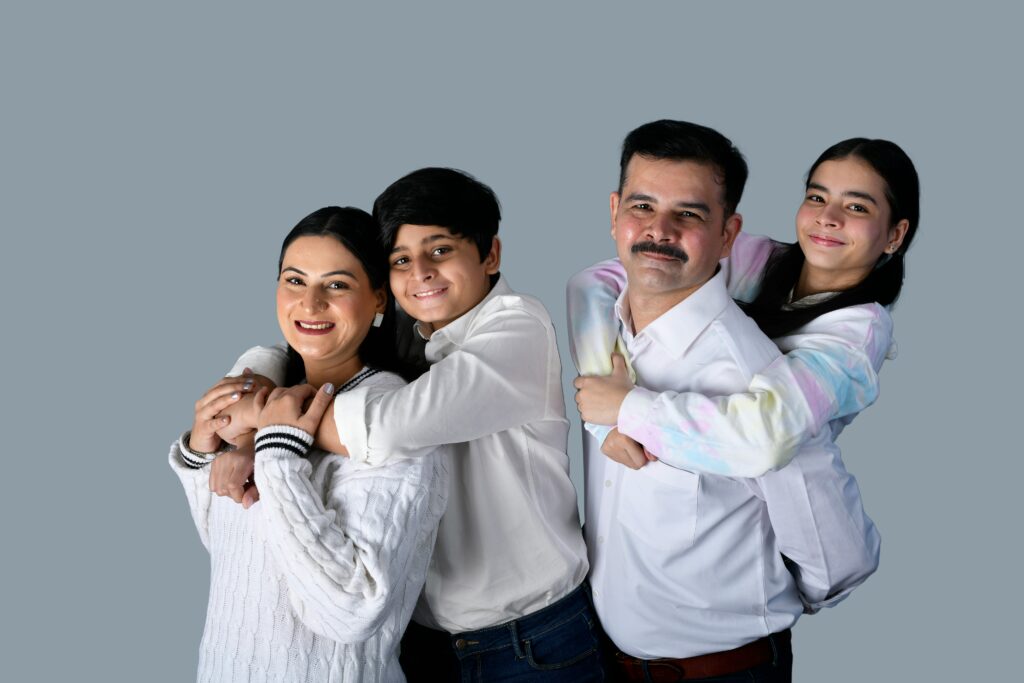Navigating the intricate dynamics of a blended family can be both rewarding and challenging. As a parent in a blended family, prioritizing self-care isn’t just a luxury; it’s a necessity. In my experience, maintaining your well-being is not selfish but a vital component of being the best parent you can be.
Balancing the needs of your partner, children, and stepchildren can often leave little time for yourself. However, by investing in your own health and happiness, you’re not only benefiting yourself but also creating a positive ripple effect within your family.
Join me as we explore practical self-care strategies tailored to the unique journey of blended family parents, ensuring you can show up fully for your loved ones while nurturing your own well-being.
Challenges of Blended Families
Navigating the dynamics of a blended family presents unique challenges that require patience and understanding. As a parent in a blended family, I’ve encountered various obstacles that can impact not only my well-being but also the harmony within the family unit. It’s important to acknowledge these challenges openly to address them effectively and promote a healthy family environment.
- Complex Relationships: In blended families, relationships can be intricate, involving multiple individuals with diverse backgrounds and histories. As a parent, managing these complex relationships between biological children, stepchildren, co-parents, and new partners can be daunting. Finding a balance that respects everyone’s needs while fostering positive interactions is crucial for a harmonious household.
- Differing Parenting Styles: Another challenge faced by blended family parents is navigating differing parenting styles. Each parent may have distinct approaches to discipline, routines, and values, which can lead to conflicts if not addressed constructively. Aligning parenting practices and maintaining open communication with all family members are essential to avoid misunderstandings and promote unity.
- Emotional Adjustments: Adjusting to the dynamics of a blended family often involves emotional hurdles for both parents and children. Feelings of loss, loyalty conflicts, and adjustment periods are common experiences that can impact family relationships. Acknowledging and processing these emotions within the family framework is vital for fostering emotional stability and strengthening bonds.
- Role Ambiguity: Role ambiguity is a prevalent challenge in blended families, where defining roles and expectations may not always be clear. As a parent, understanding your role in the family dynamic and establishing boundaries can help prevent misunderstandings and promote mutual respect among family members. Clarifying roles and responsibilities can contribute to a more cohesive and supportive family environment.
- Co-Parenting Challenges: Co-parenting with ex-spouses or previous partners can add another layer of complexity to blended family dynamics. Balancing co-parenting responsibilities, coordinating schedules, and ensuring consistent parenting approaches require effective communication and collaboration. Nurturing positive co-parenting relationships is essential for the well-being of the children and the overall family cohesion.
Acknowledging and addressing these challenges proactively can help blended family parents navigate the complexities of their unique family structure with resilience and understanding. By recognizing the obstacles and working together to overcome them, parents can cultivate a supportive and nurturing environment that prioritizes the well-being of both themselves and their families.
Importance of Self-Care for Blended Family Parents
Self-care is crucial for blended family parents to maintain their well-being and effectively navigate the complexities of family dynamics. Prioritizing personal health not only benefits individual parents but also positively impacts the overall family harmony.
Mental Health Benefits
Taking time for self-care can significantly improve mental health by reducing stress, anxiety, and feelings of overwhelm. As a blended family parent, managing various relationships and responsibilities can be challenging, making self-care practices essential for maintaining emotional balance and resilience.
Physical Health Benefits
Incorporating self-care routines that focus on physical well-being, such as regular exercise and healthy eating, can boost energy levels and overall health. Blended family parents often juggle multiple roles, making it crucial to prioritize self-care activities that promote physical strength and vitality.
Strategies for Self-Care
Self-care is crucial for blended family parents like me. Here are some effective strategies to prioritize well-being amidst the complexities of a blended family:
Establishing Boundaries
Setting clear boundaries is vital for maintaining balance in a blended family dynamic. As a blended family parent, I understand the importance of establishing boundaries with my partner, children, and stepchildren.
By communicating boundaries openly and respectfully, I can create a harmonious environment that promotes mutual respect and understanding.
Prioritizing Personal Time
Finding time for myself is essential to recharge and maintain my emotional well-being. As a blended family parent, I make it a priority to schedule personal time for activities that bring me joy and relaxation.
Whether it’s reading a book, practicing mindfulness, or enjoying a hobby, carving out moments for myself allows me to rejuvenate and better support my family.
Seeking Support Systems
Building a strong support network is key to navigating the challenges of blended family life. I actively seek out support systems, including friends, family members, or even professional counselors, to discuss my experiences and seek guidance when needed.
Connecting with others who understand the complexities of blended families provides me with valuable insights and reassurance during challenging times.
Balancing Act: Self-Care and Family Responsibilities
Balancing self-care and family responsibilities in a blended family can be challenging. It’s essential to prioritize personal well-being while fulfilling the demands of parenting and nurturing family relationships. Here are some practical strategies to navigate this delicate balance:
- Establish Clear Boundaries: Communicate openly with your partner, children, and stepchildren to set clear boundaries that promote respect and understanding within the family. Boundaries can help differentiate roles and expectations, reducing potential conflicts and misunderstandings.
- Prioritize Personal Time: Allocate time for activities that bring you joy and relaxation, whether it’s reading a book, taking a walk, or pursuing a hobby. Carving out personal time allows you to recharge and cultivate a sense of fulfillment outside of your family responsibilities.
- Build a Support Network: Surround yourself with a strong support system of friends, family, or professionals who understand the intricacies of blended family life. Seeking guidance and reassurance from others can offer valuable perspectives and emotional support during challenging times.
By integrating these strategies into your daily routine, you can strike a harmonious balance between self-care and family obligations, fostering a healthy and nurturing environment for yourself and your loved ones.
Tips for Implementing Self-Care Routine
Transitioning to a self-care routine can be challenging, but it’s crucial for maintaining a healthy balance in a blended family. Here are some practical tips to help you implement self-care effectively:
- Set Clear Boundaries: Define boundaries with your partner, children, and stepchildren to create a respectful and harmonious environment. Communicate openly about individual needs and expectations to establish mutual understanding.
- Prioritize Personal Time: Allocate moments in your day for activities that bring you joy and relaxation. Use this time to recharge and rejuvenate your energy levels, enabling you to support your family better.
- Build a Support Network: Seek guidance and reassurance from friends, family, or professionals who understand the complexities of blended family life. Surround yourself with a supportive network that can offer valuable insights and perspectives.
- Practice Mindfulness: Incorporate mindfulness techniques into your daily routine to stay present and reduce stress. Take moments to center yourself and focus on the present, promoting a sense of calm amidst daily challenges.
- Stay Active and Eat Healthily: Engage in regular physical activity to boost your energy levels and enhance your overall well-being. Maintain a balanced diet rich in nutrients to support your physical health and mental clarity.
- Schedule Regular Alone Time: Carve out moments in your schedule to be alone and reflect on your thoughts and emotions. Use this time for introspection and self-care activities that promote personal growth and self-awareness.
By incorporating these tips into your daily routine, you can proactively prioritize your self-care and well-being, ultimately benefiting both yourself and your blended family.




